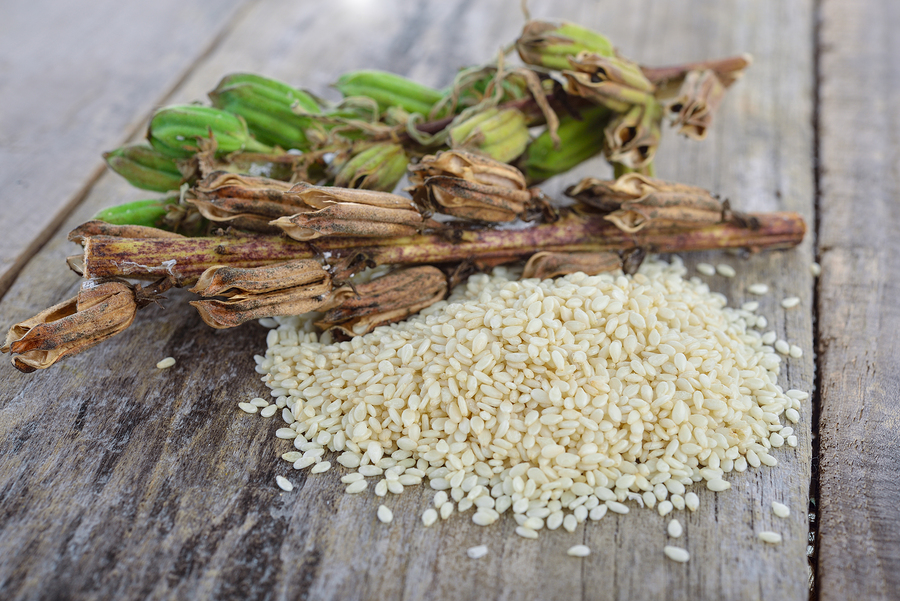A study published in the Journal of Nutrition (2006; 136(5): 1270-5) looked at the effect the ingestion of powdered sesame seed had on postmenopausal women. The subjects of the randomized, placebo-controlled crossover study were 24 postmenopausal women. The women received either 50 grams of sesame seed powder or a placebo containing rice powder for a period of five weeks. The sesame seed powder contains a lignan, known as sesamin, which can be converted by bowel flora to a substance that has estrogenic activity (enterolactone). After a three-week washout period, the placebo group and the group that originally received the sesame seed powder switched roles.
The group receiving sesame seed powder had a 5% decrease in total cholesterol, and a 10% decrease in the ratio between LDL (“bad”) and HDL (“good”) cholesterol. There was also an 18% decrease in DHEA (dehydroepiandrosterone sulfate), a 23% decrease in thiobarbituric acid reactive substances (TRARS) in oxidized LDL, a 72% increase in urinary 2-hydroxyesterone and a 15% increase in serum sex hormone binding globulin. There was also an increase in the ratios of gamma tocopherol and alpha tocopherol to total cholesterol in the group receiving sesame seed powder. In short, sesame seed powder may benefit blood lipids, and antioxidant status in postmenopausal women. It may be beneficial to hormone status as well.






